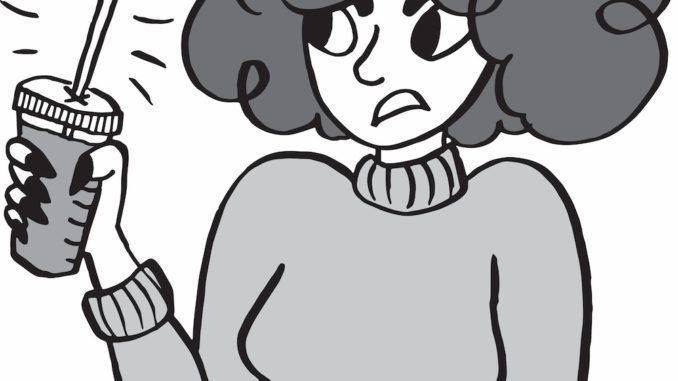
By Andrew Hayes
The new conservation fad has arrived: in the past year, many organizations and individuals have taken a stand against the commercial use of plastic straws. This trend arose following nine-year-old Milo Cress’s 2011 environmental campaign, “Be Straw Free.” In his campaign, he stated that 500 million straws were used by Americans daily, which is a statistic he had created by combining estimates from manufacturers. Following this, companies such as Starbucks and McDonald’s have pledged to seek alternatives to plastic straws in support of this conservation effort. Lewis & Clark’s cafes, The Dovecote and Maggie’s, have similarly discontinued their use of plastic straws; they have adopted paper straws as their “sustainable” option. However, subscribing to this replacement might only serve to make them feel better about their consumption practices rather than contributing to a larger pattern of change.
The actual effects, or lack thereof, generated by individual action in conservation efforts are sobering. The choices of the consumer are limited. According to Yale professor Michael Maniates, “control over these choices is constrained, shaped, and framed by institutions and political forces that can be remade only through collective citizen action, as opposed to individual consumer behavior.” Simply refusing to use a straw does not contribute to the overall collective conservation campaign as there is always surely someone else who will gladly use that same straw.
Paper straws seem to be the most viable option for companies supporting the anti-straw plastic straw campaign. However, this proves problematic. Compostable straws can only be composted in the appropriate facilities which are not always accessible across the country. The very focus on straws as a major source of environmental degradation draws attention away from all of the other plastic used in everyday life.
The antagonization of specific uses of plastics has been an evolving protest of the greater issue of plastic consumption. Whether the focus is on plastic bags or plastic straws, the collective rejection of specific products does little to confront the institutional and widespread issues of environmentalism.
So the question remains: should LC cafes discontinue their use of plastic straws? The answer is maybe. LC prides itself in being a model of campus sustainability and it does quite a lot to earn that pride. Discontinuing the use of plastic straws would undoubtedly add to the list of steps taken towards sustainable development.
However, there is a gleam of light at the end of the compostable straw. Though telling your waiters “no thanks” when they offer you a straw for your iced tea may not save the life of some poor sea turtle, it does contribute to a collective and symbolic protest against plastics. Though this campaign is based on the pseudoscience of a nine-year-old boy, it has led to institutional change for both Starbucks and McDonald’s. The effect is indisputable. However, Cress’s actions were still greater than that of an individual. Despite his young age, he stood up for what he believed to be an avoidable problem of consumption and that is admirable.
Subscribe to the Mossy Log Newsletter
Stay up to date with the goings-on at Lewis & Clark! Get the top stories or your favorite section delivered to your inbox whenever we release a new issue.

Leave a Reply